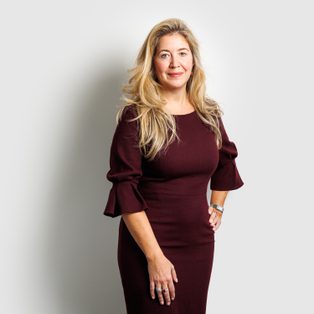During Family Mediation Week 2025, we reflect on the essential role mediation plays in resolving family disputes. Previously, we explored the mediation process and how lawyers can support couples during sessions. Now, we turn our attention to the benefits of mediation and other alternatives in resolving disputes, known as non-Court Dispute Resolution (NCDR).
What are the advantages of mediation?
There are many advantages to mediation, in particular that it allows a couple to remain in control of determining what proposals may best suit their particular family. The alternative involves pursuing the dispute through the Courts and allowing a Judge to make a decision on the family’s behalf. The autonomy of mediation is very important in determining the family’s ability to move forward.
Other points to note include:
- mediations are confidential. Due to the increased transparency in the Family Courts, it is becoming more likely that cases before the Courts will no longer be confidential, and information relating to a family’s private affairs and finances may be available to the press. This advantage can be a paramount consideration, where for example, couples wish to keep their arrangements on separation out of the media glare or public scrutiny. It is reported that Jennifer Lopez and Ben Affleck reached a settlement in their dispute via mediation, so we will never know what amounts traded hands or whether there was a pre-nup.
- mediation is undoubtedly quicker and more efficient than proceeding through the Courts, particularly given the current Court backlog.
- mediation has a high success rate, reported to be in the region of 70%.
- a series of six mediation sessions or a one-day solicitor supported mediation, where the fees are shared between the couple, is very much cheaper than the cost of litigating a dispute through the Courts.
Can mediation be used for other disputes?
Mediation works well for other civil and commercial disputes with the advantages of speed, costs and confidentiality making it an attractive option. Mediations tend to take place in one session lasting one to two days (longer if required) rather than a more frequent series of sessions of 90 minutes. The parties may be supported by their lawyers and the availability of shuttle sessions is also an advantage where the dispute is particularly contentious. Since mediation is confidential, it can be highly attractive when a court hearing may attract unwanted publicity. As the process is adaptable, it is also highly suited to disputes involving Wills/inheritances/partnership claims and other high conflict disputes.
Are there alternative non-Court options?
Other alternatives for resolving family disputes out of Court include:
- arbitration where a trained arbitrator, often a senior barrister, retired Judge, or solicitor, will provide a determination/decision on the issues in question; or
- collaborative law, where the parties and their lawyers work together in a series of roundtable meetings to resolve the dispute, where correspondence is discouraged. External experts, or for example the parties’ independent financial advisor or accountant, are encouraged to attend. The focus being to keep the dispute out of the Court arena.
- private financial dispute resolution (FDR) hearings, where a retired Judge or senior barrister will assess the parties’ cases and work to encourage settlement by offering their expertise and giving an indication as to what they believe would be an appropriate determination by the Courts. Any indication given at a private FDR is not binding upon the parties. However, it does provide the parties with a safe environment, and a strong indication from a private FDR judge can often sway the negotiations, bringing the parties to or closer to settlement.
Disputes can be challenging but the right approach to resolution can make a significant difference. Mediation offers a collaborative and confidential environment, empowering families and individuals to find solutions that work best for them whilst maintaining control over the outcomes.
At Fladgate, we have two experienced mediators, Teresa Cullen and Hetty Gleave, and Teresa is also a hybrid mediator. Both are able to conduct mediations relating to family, civil or commercial disputes. For any queries regarding mediation, please get in touch with Teresa or Hetty directly.
Read the first part of our series on mediation here.





































